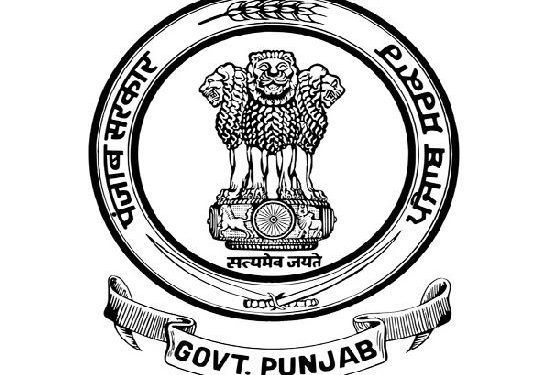MOVE AIMED AT ENSURING LARGER PUBLIC INTEREST
Chandigarh, November 7:
The Punjab government led by Chief Minister Bhagwant Singh Mann is committed for effective implementation of “Punjab Dispute Resolution and Litigation, Policy 2020” in the larger public interest.
Disclosing this here today a spokesperson of the Punjab government said that this policy addresses the pendency and backlog of cases in courts as the problem is complex and its solution needs a multi-pronged approach. A major portion of the litigation before the Courts involve writ proceedings against bodies which come under the definition of State in Article 12 of the Constitution of India, such as the Government, public sector undertakings, statutory corporations, government companies etc. and such other entities by whatever name called. Hence this Dispute Resolution and Litigation policy has been framed by the Government of Punjab as it recognizes that the Government and such State entities are a party in a large portion of litigation before the courts and the quasi judicial authorities and it is necessary to create conditions which would minimize the institution of cases and reduce delays in settling litigation.
The policy further seeks to ensure that the State and all such State entities effectively work to reduce future litigation and do not contribute to any delay in the ongoing litigation. The State and such State entities shall, where feasible, encourage resolution of disputes with the government administratively or through an alternative dispute resolution system so that all disputes are not left to courts for ultimate decision. The policy stipulates that the state shall ensure efficient management of litigation and conduct itself as a responsible litigant. The State shall take effective steps to reduce new disputes before the courts.
Employees will be encouraged to settle disputes at the level of the State itself or through an alternative dispute resolution system. Officers will be trained to pass well-reasoned, speaking orders in accordance with the settled law after providing an opportunity of being heard to the stakeholders. The State shall endeavor to avoid unwarranted litigation, especially where the financial impact is less than two lakh rupees; unless there is a substantial question of law or policy also involved, the competent authority shall pass a speaking order regarding the recoverable dues within the time period prescribed.
Where the matter may be resolved/ disposed of by converting the pending litigation into a representation to the concerned Administrative Secretary/Head of Department for time bound orders. Where employee’s matters are already covered by judgments that have attained finality, the competent authority shall take a decision or to grant the same relief/benefit to the other similarly placed members of the cadre, whose claims are based on similar facts and points of law. Decisions pertaining to cases of medical claim, pension or retirement benefits without involving any principle and without setting any precedence shall be taken by the competent authority within the prescribed time limit and definitely, on the receipt of notice under section 80 CPC.
Where the matter is such that no further or useful purpose will be served to the State in prosecuting such matter. Appeals shall not be filed against ex-parte ad interim orders unless absolutely necessary. Instead, an attempt be made to have the order vacated. An appeal must be filed against an order only if the order is not vacated and the continuation of such order causes prejudice to interests of the State. Appeals must be filed to the Appellate court in the first instance. Direct appeals to the Supreme Court must not be resorted to except in extraordinary cases.
The policy also stipulates that no appeal shall ordinarily be filed in service matter cases where the decision is on a trivial matter and does not set a precedent and pertains to an individual grievance, the decision pertains to a case of pension or retirement benefits without involving any principle and without setting any precedent. Similarly, the appeals in Revenue matters shall ordinarily not be filed, if the financial implication of the matter is less than Rs. 2 lakhs unless it involves a substantial question of law or policy, if the matter is covered by judgments of the High Courts which have held the field and which have not been challenged in the Supreme Court; or that of the Supreme Court and the present case cannot be distinguished from the facts of those cases.
The policy also stipulates that the department shall ensure that appeals, applications, written statements and replies are filed before the courts within the stipulated times so that adjournments on these technical grounds are avoided. Departmental action be taken against officials who are negligent in this regard. The resort to arbitration as an alternative dispute resolution mechanism will be encouraged. However, while doing so, it needs to be ensured that such arbitration has to be cost effective, efficacious, expeditious, and conducted with high rectitude.
The policy also envisages each Head of Department of the State shall appoint a Departmental Nodal Officer for litigation, who shall not be below the rank of a Deputy Director of the Department of Government of Punjab. Such Departmental Nodal Officer shall monitor and supervise the litigation of the State pending in various courts/ quasi-judicial authorities and shall be responsible for active case management. Departmental, district level and state level Litigation committees will be set up for further streamlining the matter.








